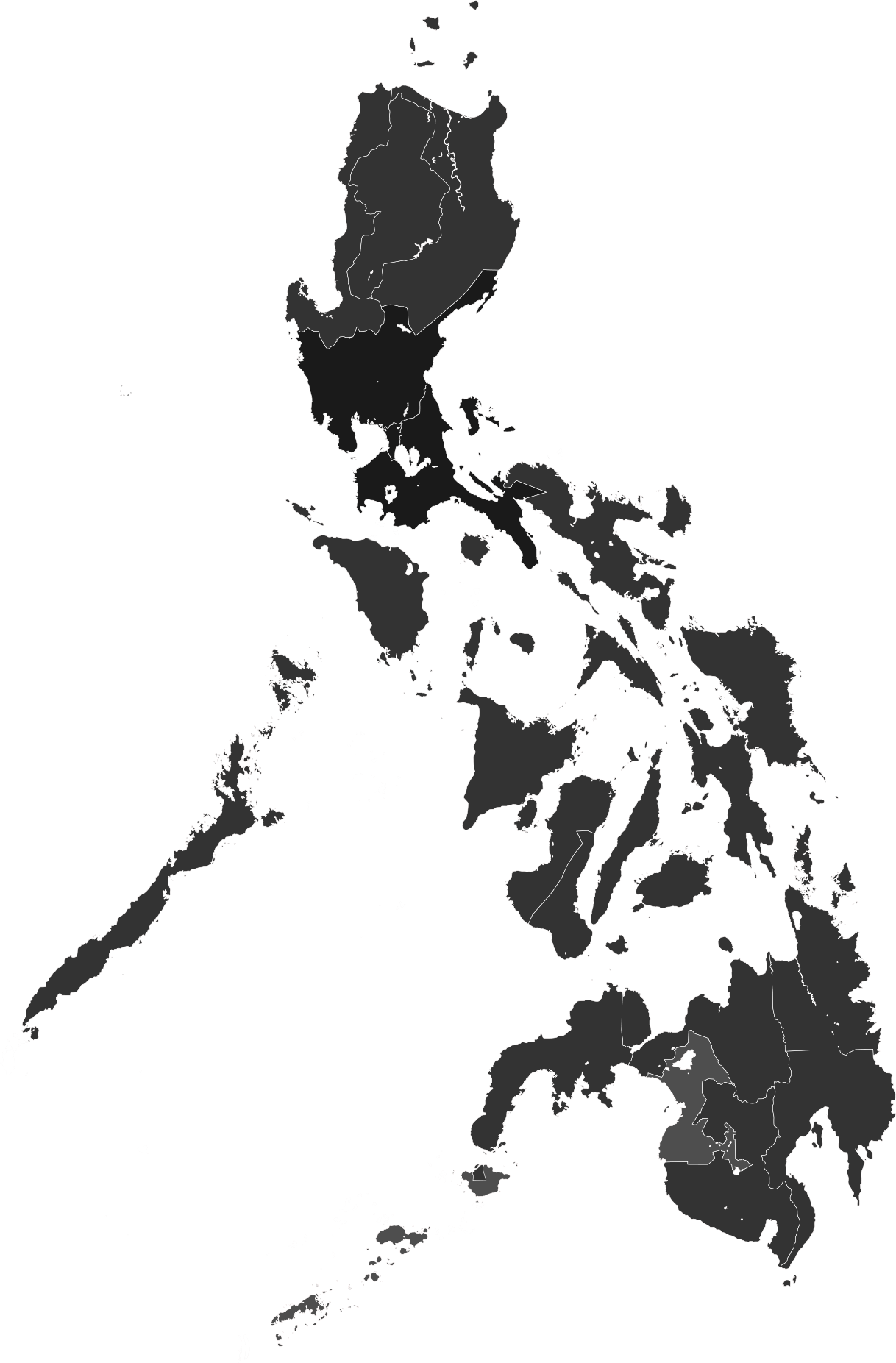Why The Philippines
Offshore In The Philippines
English is the Official Language
The Philippines is one of the largest English speaking nations in the world. Ninety two percent of Filipinos can speak English and the majority speak with a neutral accent that is easy to understand.
The country’s proficiency in the language is one of their commendable strengths, making them the top country businesses turn to for offshore voice and non-voice business support.
Education System
The Filipino workforce has a compelling advantage over any other Asian country. With a high education priority and a focus on literacy there are some 350,000 graduates enriching the professional pool every year.
Education is a main thrust of the government and the education system is consistently being improved to stay on par with global standards. Offshoring adopts a policy of employing as a minimum, tertiary educated candidates. This delivers a good standard in English language, work ethic and learning capability.
Work Ethic
Filipinos are known to be hardworking and dedicated to their job, buoyed by the determination to fulfil their professional aspirations and provide for their families. Their respectful, friendly, and calm manner is the attractive aspect many employers look for in their employees.
Mass transit railway service, expansion of the Clark International Airport, renewable energy, efficient waste and water management and high-end technology. The Clark Freeport Zone in particular offers Government backed tax breaks, import and export trading incentives along with efficient access to Government.
Proven Competence and Reputation
Starting from call centres and eventually expanding to back office operations, the Philippines has developed into one of, if not, the best offshoring hubs in the world. It has become a trusted offshoring destination for clients in Australia, the United States, Europe, among others, providing services 24 hours seven days a week. Culture Cultural difference plays a big factor in offshoring success. Highly compatible with Western cultures the Philippines is predominantly Christian based and quite westernised as a result of the strong American influence from years of being a U.S. colony.
This eliminates many of the cultural barriers experienced with other countries in Asia making the Philippines a centre of excellence in the region.
Fast-growing Economy
With GDP growth of 6.6% the Philippines is the fastest growing economy in Asia. Tremendous progress has been made in the quality and reliability of the country’s infrastructure and business support capabilities with the Philippine Government’s effort to attract international investment. Major projects include high-capacity


It’s More Fun in the Philippines
It’s More Fun in the Philippines
Get a taste of the best of sun, sea, sand, and style in a tropical country boasting with the best of Western amenities. The Philippines is an excellent place to call second home to expats who love the company of the friendliest people in the region, the country’s welcoming nature to varied cultures, and a decidedly global outlook. Expats can enjoy accessible and amazing affordable luxuries, such as business centres, housing, schools, hospitals, shopping malls, hotels, restaurants, beach resorts, and several recreation centres.
Why Offshore
Discover the Philippines
Key to Success
Open global trade and advancing technology have equipped businesses and organisations with the opportunity to scale their institutions in ways that weren’t possible a few decades ago.
Now, businesses can outsource and offshore projects, tasks, and even employees overseas without sacrificing the quality and integrity of the brand and company.
Open global trade and advancing technology have equipped businesses and organisations with the opportunity to scale their institutions in ways that weren’t possible a few decades ago.
Now, businesses can outsource and offshore projects, tasks, and even employees overseas without sacrificing the quality and integrity of the brand and company.
Your offshoring and outsourcing team in the Philippines is the extension of your business. Nurture and grow them like your local staff. To run your offshoring team successfully, invest time and energy in growing and nurturing them.
More About The Philippines
Capital: Manila
Dialing code: +63
Population: 109.5 million (est2020)
Currency: Philippine Peso
Official Language: English, Filipino
Employment Rate: 93.40%
Literacy: 96.50%
Average Yearly Income:
In the Philippines in 2018, the average Filipino family income was PHP 313,000/year (USD$6,231.27).
In the National Capital Region, an average family’s income was around PHP 460,000/year (USD$9,157.78).
Offshore in the Philippines

Appointing Your Team
Your Service Provider will prepare all new team members with NBI Security clearance, fit for work health checks, barangay work permits, induction and familiarisation training, security and confidentiality agreements, employee handbook mapping workplace policy & procedures, health & safety regulations. Employment contracts include provisions to be available to work business days in the country of service.
Day to Day Management
Your new employee is dedicated to your business, works for you at your direction, embracing your company’s values and culture. Onboarding, training and induction into your team is just as important as it would be for you employing a new team member locally in your business. You are responsible for issuing day to day work tasks and duties, monitoring productivity, providing employee feedback on performance, reward and recognition.
Service Provider Support
Your Service Provider supports you with on-ground assistance to co-manage your team with the Account Manager to assist you with local culture, communications, 180 degree feedback and managing local challenges, time and attendance monitoring, CCTV for you to see your team in their working environment and as the legal employer, all HR related activities. The IT Department assists you to manage networks, system security and interface with your business applications, servers or cloud based connections.
Systems and Procedures
With any remote worker it is important to define roles, and to set systems and procedures with establishing your offshore operation. Having defined operating expectations, help your staff to reach their potential and to exceed your expectations.
It is important to present your staff with the right foundation to build their skills and knowledge in helping you improve your business.

Train and Invest
No different to starting a new employee in your home country, it is important that you invest time to properly induct and train your staff to your standard. The continuing advancement of technology has helped businesses communicate with their offshore teams quite readily. Providing leadership, mentoring and performance review will get your new staff up to speed quickly and efficiently.
Leadership
As both your local and offshore teams grow it is important to establish leadership to provide guidance and direction, deliver on required outcomes and acknowledge reward and recognition. While from start up or with a small team, leadership can be provided from your home based business organisation, with larger teams local supervision from a Team Leader will strengthen your offshore operation.
Reward and Recognition
Performance recognition is important in any work place and with an offshore team it is just as important to maintain motivation. The big difference is that a remote team does not benefit from casual acknowledgement that might recognise a local team. You need to make a deliberate effort to reach your offshore team that might be as simple as a worker of the month program, letter of recognition, pizza Friday or shopping voucher. While a Filipino worker typically works to exceed your expectations it is important to acknowledge such achievements. Your Service Provider should provide guidance on responsible reward and recognition tactics that are consistent with the local Philippine labour market.
Engagement and Retention
Keeping good staff particularly after investing the effort to train them in your business is important. While the Service Provider is able to offer a positive workplace and conditions which make it a great place to work, you are in control of the greater engagement and retention factors. Your Service Provider should provide guidance on responsible engagement and retention tactics that are consistent with the local Philippine labour market, from fair pay to team building initiatives.